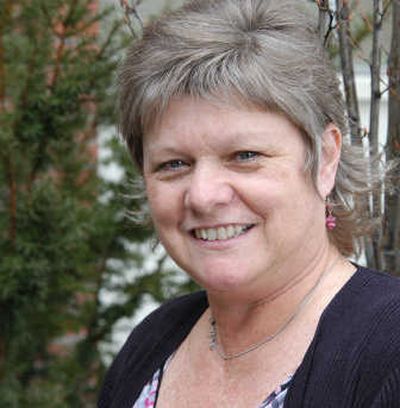Green networking

As the new outreach coordinator for the Faith and Environment Network of the Inland Northwest, Shelli Pitner seeks to connect people in the faith community to build “critical mass” around creating “a cohesive green voice in the region.”
“Many think they will do something someday, but all we have is this moment,” Pitner says.
“People in generations X, Y and Z are all busy, but we all need to learn to live with the Earth,” she says. “We are the disposable ones.
“The Earth will be here after we have gone. The least we can do is leave it better for the next generation.”
Pitner is ready to infuse energy into the newly independent nonprofit, which was started in 2006 through the Interfaith Council of the Inland Northwest.
She says the network encourages recycling; green building and low-maintenance, water-smart landscaping with indigenous plants; and simple actions, such as using cloth grocery bags and low-energy light bulbs.
It also seeks to “break down barriers that keep people re-creating the wheel, spinning their wheels,” Pitner adds, by providing resource sharing and networking opportunities.
For example, she says, congregations can connect to barter the skills of members who are plumbers, electricians or landscapers, so they can share those with other churches and in the community.
To facilitate such contacts, the Faith and Environment Network Web site (faithandenvironmentnetwork.org) will be launched by May 1 to serve as a clearinghouse for congregations and nonprofits to share ideas.
The group also will prepare traveling exhibits and slide shows that can be viewed by congregations, schools and community centers.
Pitner’s own commitment to simple living includes not seeking a full-time teaching position and committing to live on income from AmeriCorps through the Palouse-Clearwater Environmental Institute and the network.
The Lewiston native holds an associate degree in business management from Lewis and Clark College, a bachelor’s degree in education from Gonzaga University and a master’s degree in education from Massachusetts-based Lesley University.
Pitner was administrator of Coeur d’Alene’s Children’s Peace Camp and Neewahlu Environmental Education Center on Kidd Island Bay from 1989 to 1993.
With community volunteers, she helped develop a curriculum that later was adapted for teams of high school teens in the Interfaith Council’s Camp PEACE (People Everywhere Are Created Equal) to challenge bullying and bigotry.
Through Neewahlu, which was started through Unity Church of North Idaho and later became independent, Pitner led environmental education programs.
As an employee of the Coeur d’Alene School District, she worked at Kelley Creek Environmental Center to provide environmental education for sixth-graders.
To grab the attention of children, Pitner often started a dialogue by holding up a bottle of water and saying it was the same water dinosaurs drank.
“Water keeps recycling, so we need to keep it clean,” she says.
“We need to live with the Earth, not just on it. We need to think about seven generations. It’s our job and privilege to care for the Earth, to live as an example for others to follow.”
After moving to Seattle in 2000, where she taught special education at inner-city schools, Pitner also was involved in environmental education in King County through the Green Team and People for Puget Sound.
When her mother had a stroke and her father needed help in Lewiston, Pitner returned to the Spokane area in August. She began doing substitute teaching and private tutoring and served on the board of the Faith and Environment Network.
Her son’s health sensitivities helped stir some of her awareness about the need for responsible living that honors “who we are, who is around us, our different beliefs and respect for the Earth.”
Pitner, who grew up in a Lutheran church in Lewiston, began attending a Unity Church in Walla Walla and now attends Unity Church of Truth in Spokane.
“Unity encourages us to take responsibility for our personal beliefs,” she says. “We are involved in the world, providing healing, peace outreach and environmental responsibility.”
Pitner, who worked with homeless people at The Lord’s Table in Seattle, calls for combining awareness about the environment with concern for economic issues.
“If we are stewards of the Earth,” she says, “each of our actions affects everyone in every instance of daily life.”